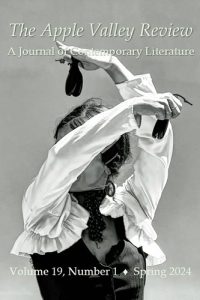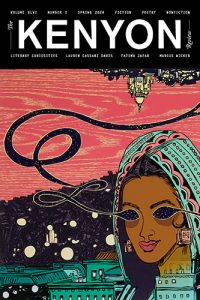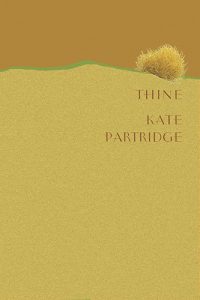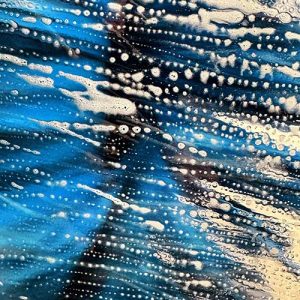Iodine Poetry Journal – Spring/Summer 2012
Volume 13 Number 1
Spring/Summer 2012
Biannual
Charles Davenport
On the whole, the poetry in the Spring/Summer 2012 edition of Iodine: Poetry Journal is “poetry of witness,” a term put forth (if not created) by Carolyn Forché. Not every poem is dark and foreboding, however, but the journal is filled with wounds that beg to be healed, even if it hurts to do so. After all, isn’t that the essence of iodine, the tincture, to begin with?
On the whole, the poetry in the Spring/Summer 2012 edition of Iodine: Poetry Journal is “poetry of witness,” a term put forth (if not created) by Carolyn Forché. Not every poem is dark and foreboding, however, but the journal is filled with wounds that beg to be healed, even if it hurts to do so. After all, isn’t that the essence of iodine, the tincture, to begin with?
As Iodine Editor Jonathan K. Rice laments in his introduction, publishing poetry doesn’t pay the bills much better than does, say, writing poetry. So, when he lost his “day job,” the one that actually did pay the bills, Rice chose to write about it in the introduction. Don’t worry, he tells readers, “There’s too much to do, and so much to be thankful for . . .” Pass the iodine, and let the healing begin.
The journal opens dramatically with two poems from Jeffrey C. Alfier, a two-time Pushcart nominee who spent twenty-seven years in the Air Force before becoming the editor of the San Pedro River Review. Alfier plays with colors, shadows, plumes of coal-black darkness, and light that never seems to blossom into radiance in “The Gathering Light at San Cataldo” and “0800 Intelligence Briefing, 14 Feb 06.” War in Alfier’s poetry is like a broad brush that discolors and dims everything with a gray mist; nothing is ever fully hidden, nor is it every fully revealed. It’s possible that nothing is as it seems, but it’s also possible that it is exactly how it seems. Such is the nature of memory of chaos and trauma. Alfier’s poetry is, perhaps, emblematic of soldiers’ poetry immediately after their war experiences in which certain events are kept at distance through metaphor. However, in the fifth stanza of “0800 Intelligence Briefing, 14 Feb 06” an image emerges as stark as a nail protruding upward from the ground, and it is as haunting as it is vivid:
And finally, in living color this time, counter-sniper
Fire—the effect of a 50-cal. on a poorly-hid enemy,
his right arm, complete with shoulder blade,
tossed away in the air at the bidding of velocity.
With the inclusion of Alfier’s poetry, Iodine can be counted among those journals making it a point to take on the writings of veterans who, like Alfier, Brian Turner, and Bruce Wiegl, have turned away from the politics and patriotism of war and speak more directly to the horrifyingly chaotic and traumatizing nature of war itself. And for that, they deserve a lot of credit.
From Alfier’s accurately dreary visions of war, Iodine shifts its focus to more domestic matters, though the mood remains almost as bleak in Gilbert Allen’s dystopian-like vision of a dried up American Dream, “Encore.” Allen lives in South Carolina, but the setting for his poem could be any town that has suffered in the massive mortgage foreclosure crisis. He doesn’t focus on the banks, Wall Street, or even the people who lost their homes; instead, he chooses to tell us about a single house that sits empty and the automatic sprinklers that dutifully water the lawn twice a day at precisely the same times every day. Even the living move about the landscape with machine-like predictability: “the post office has / a new directive, friends and relatives / gathered, dispersed, the dogs shedding / on distant, disparate sofas.” As Allen suggests in the title, this is nothing new to the American landscape but rather the script for an encore that everyone knew was coming. Poetry of witness often has the feeling that our present has caught up to the future dystopia we feared.
But, not all losses are as tangible as Allen’s mortgage foreclosure dystopia or Alfier’s casualties of war. In her poem, “The Man Goes on Holiday to Gather Words,” Tobi Cogswell reminds us in the form a third-person narrative that sometimes what we lose is the comforting sense of something or someone occupying our days and our hearts. Cogswell, who writes the poetry blog for online arts journal Fogged Clarity, opens the poem with a “sprig / of rosemary from a summer / walk along the ocean” sitting atop a dresser next to a delicate sand dollar, an olive branch and an extra pair of sunglasses. “She sees these things, / but doesn’t see them.” Now, the man who is no longer there is foraging the earth for, presumably, inspiration. In the last stanza, he remembers “the crook of her neck” while she struggles to remember “as her rosemary fades to gray.”
This issue of Iodine is about loss, but there is enough here to gain that it warrants a close reading of more than just this issue.
[www.IodinePoetryJournal.com]




